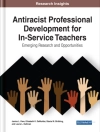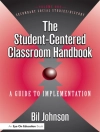‘The author empowers teachers to engage IT specialists or administrators in a discussion about the use of mobile technologies or Web 2.0 tools and to change the way we think about using technology with kids. This book gives readers lots of information (ammunition) to go out and make things happen with their cell phone, laptop, MP3 player, or digital camera!’
—April De Gennaro, Gifted Education Teacher
Fayette County Board of Education, Fayetteville, GA
A foundational guide for integrating mobile technologies into your classroom!
Writing for educators who want to use 21st-century technologies to help deliver relevant classroom instruction, Susan Brooks-Young examines inexpensive hardware already used by many students, explores free Web 2.0 tools such as social networking sites and virtual worlds, and sheds light on both common objections and changing points of view about using mobile technologies for instructional support.
Emphasizing digital citizenship—the ethical use of technology—this invaluable resource identifies:
- Specific Web 2.0 tools for supporting collaboration and communication in K–12 settings
- Strategies for practical applications
- A decision-making model for selecting appropriate mobile technologies and Web 2.0 tools for classroom use
- Recommended books, Web sites, and online reports and articles for reference
Teaching With the Tools Kids Really Use gives educators a solid approach for capitalizing on readily available technologies and opens up rich teaching and learning opportunities for today′s classrooms!
Daftar Isi
Acknowledgments
About the Author
Introduction
1. 21st-Century Skills
What Are 21st Century Skills?
Common Objections to Teaching 21st Century Skills
Changing Points of View
Strategies for Classroom Use
Practical Suggestions
Discussion Points
References
Part I. Mobile Technologies
2. Cell Phones
The Scoop on Cell Phones
Common Objections to Cell Phone Use on Campus
Changing Points of View
Strategies for Classroom Use
Practical Suggestions
Discussion Points
References
3. MP3 Players
MP3 Player Basics
Common Objections to Use of MP3 Players on Campus
Changing Points of View
Strategies for Classroom Use
Practical Suggestions—Using Existing Files
Practical Suggestions—Podcasting Basics
Discussion Points
References
4. Netbooks
Netbooks 101
Common Objections to Use of Netbooks on Campus
Changing Points of View
Strategies for Classroom Use
Practical Suggestions
Discussion Points
References
Part II. Web 2.0 Tools
5. Social Networking
Introduction to Social Networks
Common Objections to Use of Social Network Services on Campus
Changing Points of View
Strategies for Classroom Use
Practical Suggestions
Discussion Points
References
6. Virtual Worlds
Virtual World Basics
Common Objections to Use of Virtual Worlds on Campus
Changing Points of View
Strategies for Classroom Use
Practical Suggestions
Discussion Points
References
7. Creating Content—Writing
Writing Online
Common Objections to Classroom Use of Online Writing Tools
Changing Points of View
Strategies for Classroom Use
Practical Suggestions
Discussion Points
References
8. Creating Content—Images
Online Photos and Video
Common Objections to Classroom Use of Online Photo and Video Sites
Changing Points of View
Strategies for Classroom Use
Practical Suggestions
Discussion Points
References
9. Gaming
The Basics About Games and Gaming
Common Objections to Classroom Use of Online and Video Games
Changing Points of View
Strategies for Classroom Use
Practical Suggestions
Discussion Points
References
10. Digital Citizenship
Ethical Use of Technology
Discussion Points
References
11. Decision Making and Implementation Model
Who’s Calling the Shots?
Thinking Ahead
Decision Making Model
Glossary
Web Sites by Topic
Index
Tentang Penulis
Susan Brooks-Young has been involved in the field of instructional technology since 1979. She was one of the original technology users in the district where she taught and has continued to explore ways in which technology can be used to facilitate student learning. She has worked as computer mentor, technology trainer, and technology curriculum specialist. Prior to establishing her own consulting firm, Susan was a teacher, site administrator, and technology specialist in a county office of education in a career that spanned more than 23 years. Since 1986, she has published articles and software reviews in a variety of education journals. She is also author of a number of books which focus on effective use of technology in schools. Susan works with educators internationally, focusing on practical technology-based strategies for personal productivity and effective technology implementation in classrooms. Two current areas of particular interest for Susan are mobile technology and BYOT programs.












